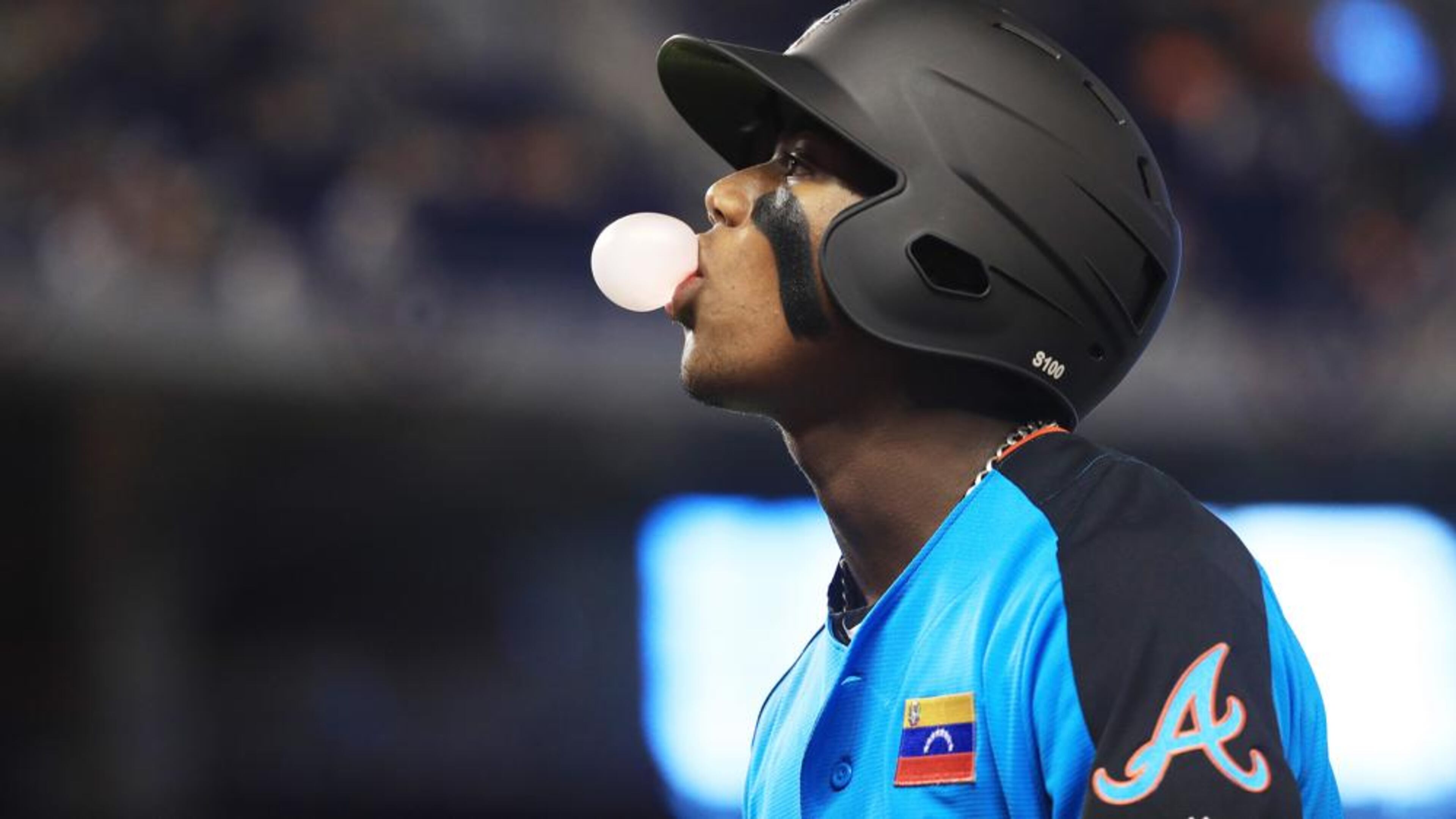Braves at the break - better than expected, with the best yet to come

Had you told me that, by the All-Star break, the Braves would have seen Bartolo Colon become the worst pitcher in the majors; Jim Johnson blow a big-league worst seven saves and Freddie Freeman miss seven weeks, I’d have said, “Ten games under .500, tops.” All of the above happened. The Braves are 42-45.
Had they won Sunday in D.C., they’d have the National League’s sixth-best record – better than the Cardinals, who are always good, better even than the Cubs, who not long ago were great. I remain pessimistic about the Braves’ playoff chances, but still: Who figured we’d be talking playoffs in mid-July?
At the 2016 All-Star break, the Braves were a worst-in-baseball 31-58. They’ve risen from wretched to mediocre, and they’ve done it in Year 3 of what figured at best to be a five-year rebuild. And here’s the darnedest part: What we’ve seen these first 89 games is but the tip of a wave building in ballparks other than the one in Cobb County, a wave that should be the first of many.
Because no fan likes to see his/her team lose, John Coppolella has been the target of much venting over the past 2 ½ years. No matter. The Braves’ general manager could soon be giving seminars at highbrow analytic conferences. The topic: “How to Rebuild Without Losing 100 Games or Having a No. 1 (or Even a No. 2) Pick.” We reference the Astros and Cubs as models for the Braves, but that’s not quite accurate. Houston had three consecutive 100-loss seasons and three ensuing No. 1 picks. The Cubs lost 101 games and drafted Kris Bryant No. 2 the next year.
No team has torn itself down so completely and gotten back to anywhere near break-even so soon. We can’t know if the Braves will be look as good as the Cubs did last year or the Astros look now, but we can say this: At no point in their rebuilds did those organizations have one-tenth the young pitching the Braves have assembled. (The Cubs bought their World Series-winning rotation, the bill for which has come due. Their starters’ ERA was 2.96 last season; it’s 4.66 now. The team that won 200 games over two seasons mightn’t break 90 this time.)
No team has embarked on such a teardown with a new stadium set to open in two years, compounding the difficulty of an already-perilous process. Rather than simply absorb the 100-plus losses while waiting for the kids to mature, Coppolella was forced to find place-holders. Hence the peculiar nature of the 2017 Braves: A team in full-blown flux looks, to the naked eye, like a group of graybeards. (Five Opening Day starters were over 30; only Dansby Swanson was younger than 26.) For that reason, these first 89 games aren’t necessarily reason to believe that the next 73 will be better – or that the 2018 Braves’ record will automatically be an upgrade over 2017.
The Braves’ rebuild has run on parallel lines. Those lines are about to intersect. The Opening Day lineup next April could include Ronald Acuna, who’s 19 as we speak, and Ozzie Albies, who’s 20. The 2017 Braves have been good enough to hold our attention, but maximum capacity of this team is probably .500, give or take. The first full class of graduated prospects should have a much more elevated ceiling, but we’ve seen already that kids, duh, will be kids.
Swanson was very good for seven weeks last season; among qualified MLB hitters, he’s seventh-worst in OPS this season. Sean Newcomb’s first four major-league starts were superb; the next two were horrid. Back to the Astros: They lost 106, 107, 111 and 92 games; then they went 86-76 and grabbed a wild card; last year they slid to 84-78 and missed the playoffs. Today they’re no worse than the second-best team in baseball. They’re also a reminder that the move from terrible to great is rarely seamless.
“Seamless” is a word favored by John Schuerholz, who spoiled this audience. In his first year here, his Braves went from 97 losses to 94 wins. Their transition time lasted as long as it took Schuerholz to snap his suspenders, and they stayed good for what seemed forever. But the Hall of Fame GM, it must be said, inherited a bountiful farm system cultivated by Bobby Cox, himself a Hall of Famer. Coppolella inherited next to nothing.
This was meant to be a bridge season – a band of retreads getting the Braves through Year 1 in SunTrust and that much closer to the first full blush of youth. The bridge has gone way better than anticipated. This team could win 80 games. Next year’s Braves will be different, meaning younger, meaning 80 wins might be a reach. But this rebuild won’t rise/fall on any one season.
The Braves are in this for the long, long haul. (You don’t draft a slew of high school pitchers if you’re not.) They’ve come so far so fast that their skill and audacity might get lost in the rush. Don’t let it. What we’re watching has the potential to become something historic. This rebuild could be known as The Rebuild.
Further reading: Which Braves are apt to be traded by the deadline? Glad you asked.

